After extensively testing Mailchimp, Saleshandy, and SalesRobot, running multiple outreach campaigns across email and LinkedIn platforms the differences between these tools became increasingly clear:
Mailchimp excels as an email marketing platform for newsletter campaigns and visual content. It's the go-to solution for marketers focused on nurturing existing audiences with beautifully designed emails and automation workflows.
However, it's not designed for cold outreach and using it for such purposes risks account suspension.
Saleshandy positions itself as a cold email specialist, offering strong deliverability for sales teams conducting email-based prospecting.
With its multi-step follow-up sequences and personalization capabilities, it helps sales professionals reach prospects' inboxes and track engagement effectively.
However, neither of these tools adequately addresses the needs of B2B professionals who recognize LinkedIn as the premier platform for business development. This is why I've included SalesRobot in the comparison. Cold email campaigns now typically yield only 1-2% positive response rates at best, while LinkedIn campaigns consistently deliver 10%+ response rates for well-executed campaigns.
And what makes SalesRobot stand out is its account safety focus. While testing the platform, I noticed how it automatically adjusted activity when LinkedIn showed warning signals, something that has helped over 3,700 users maintain their LinkedIn accounts while automating outreach since the tool launched in May 2020.
In this article, I compare Mailchimp vs Saleshandy vs SalesRobot across six key areas:
- Platform Focus & Core Capabilities
- Automation Features
- Safety & Compliance
- User Experience
- Pricing & Value
- Integrations & Extensibility
I'll also examine the ideal use cases for each tool to help you determine which solution best aligns with your specific outreach goals.
Summary Comparison Table
What is Mailchimp?
"Everyone can be a marketer" 📧✨
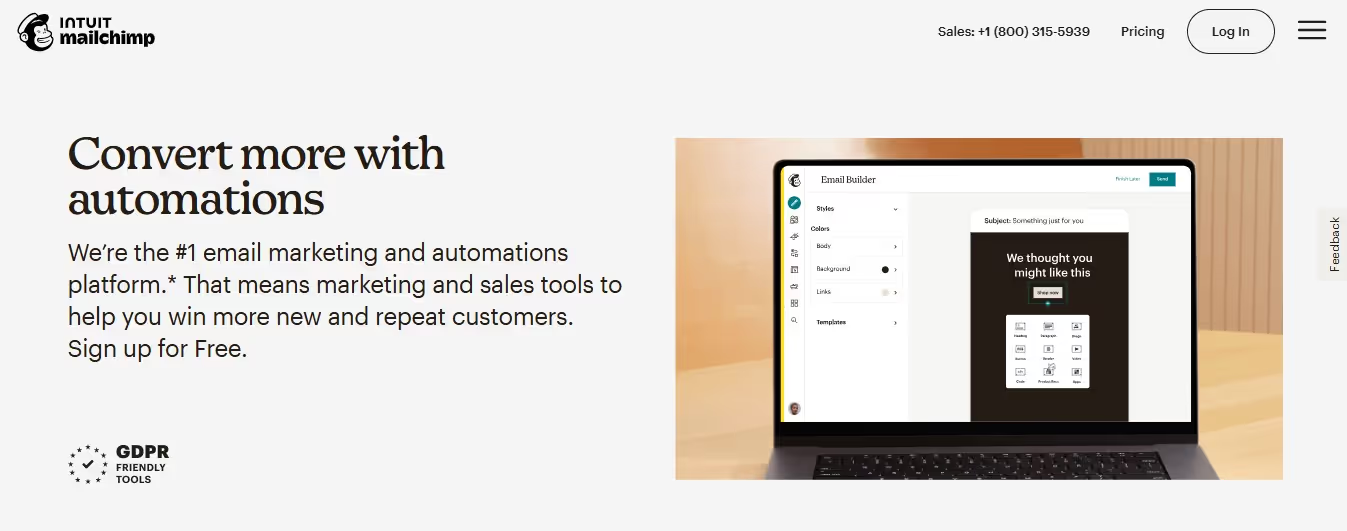
Mailchimp has been helping businesses connect with their audiences since 2001, when Dan Kurzius and Ben Chestnut started the company as a side project in Atlanta. Initially focused on email design for their web design clients, they quickly realized that small businesses needed a simple, affordable way to create and send marketing emails without requiring design or technical expertise.
Born from the frustration of seeing small businesses struggle with expensive, complex marketing tools, Mailchimp was built on a simple philosophy: marketing should be accessible to everyone. The company's mascot, Freddie the Chimp, embodies this playful, approachable spirit that makes email marketing feel less intimidating and more fun.
Mailchimp revolutionized email marketing by introducing drag-and-drop design tools, making it possible for anyone to create professional-looking emails without coding knowledge. Today, they've evolved into a comprehensive marketing platform with over 14 million users worldwide, offering not just email marketing but also automation, landing pages, and customer journey tools.
What is Saleshandy?
"Cold outreach that converts" 🎯📈
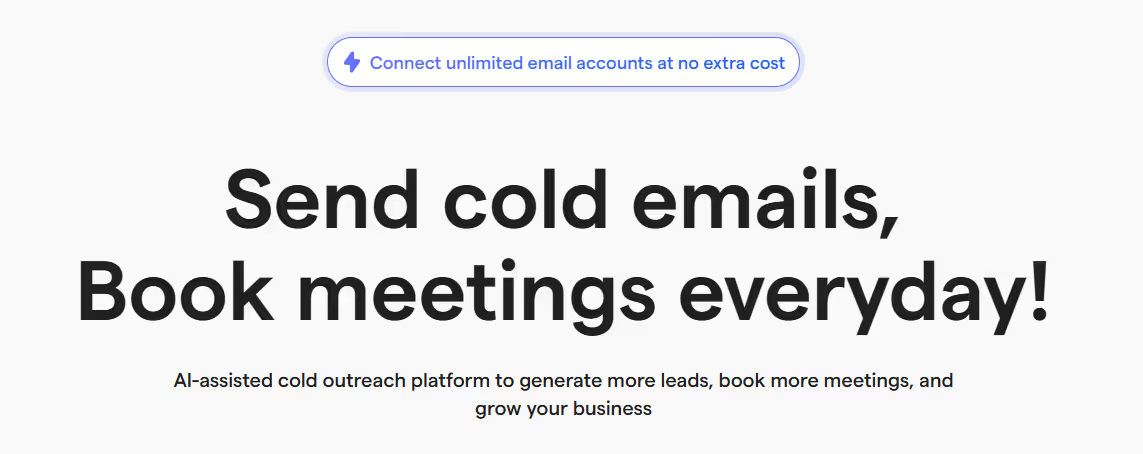
Saleshandy emerged in 2016 when the founding team recognized a critical gap in the market: while there were plenty of tools for marketing emails, sales teams engaging in cold outreach faced unique challenges. Traditional email marketing platforms weren't designed for the personalized, sequence-based approach that cold outreach requires.
The founders, led by Dhruv Sheth and Shakir Tamboli, came from sales backgrounds and experienced firsthand the pain of managing cold email campaigns manually. They watched sales teams struggle with low deliverability rates, manual follow-ups, and the inability to track individual prospect engagement effectively.
Saleshandy was built from day one to solve these specific problems. Unlike general email marketing tools, every feature was designed with cold outreach in mind: email warm-up to improve deliverability, automated follow-up sequences that pause when prospects reply, and sophisticated tracking that doesn't compromise inbox placement. The platform introduced innovations like inbox rotation and sender reputation management, becoming a pioneer in making cold outreach both scalable and effective.
What is SalesRobot?
"Become the hero of seamless LinkedIn automation" 🦸♀️🔗
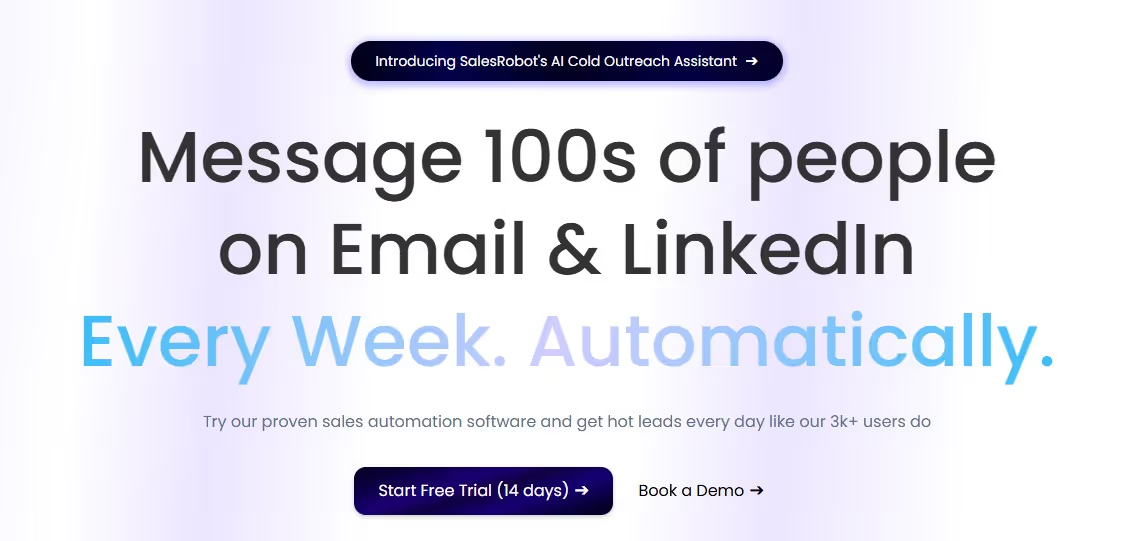
SalesRobot was born in May 2020 from a frustrating observation: while LinkedIn had become the premier platform for B2B prospecting, existing automation tools were consistently getting users' accounts banned. Founder and CEO realized that the problem wasn't just about automation—it was about doing it safely and sustainably.
The founding team watched as sales professionals and agencies built valuable LinkedIn networks only to lose them due to aggressive automation tools that ignored LinkedIn's terms of service. They saw a clear need for a solution that could automate LinkedIn outreach while keeping accounts safe and maintaining the genuine, personal connections that make LinkedIn effective.
SalesRobot pioneered the use of dedicated residential IP addresses and mobile API integration to mimic natural user behavior. By focusing on account safety from the ground up, they created a platform that allows users to scale their LinkedIn outreach without risking their professional presence. What started as a solution for LinkedIn automation has evolved to include email capabilities, creating a true multi-channel outreach platform.
Over the past four years, SalesRobot has grown to over 3,700 users, with zero account bans reported when following their recommended practices. This safety-first approach has made them the go-to choice for B2B founders, sales teams, and LinkedIn lead generation agencies who value their professional reputation as much as their outreach results.
Mailchimp vs Saleshandy vs SalesRobot: Platform Focus & Core Capabilities
The core capabilities of these three platforms diverge significantly because they serve fundamentally different purposes in the outreach ecosystem.
Mailchimp has built its reputation as the go-to email marketing platform for businesses that need to communicate with their existing audience. Its visual drag-and-drop editor makes it possible for anyone to create professional-looking newsletters, promotional emails, and automated welcome series.
The platform excels with features like:
- Visual email builder with hundreds of templates
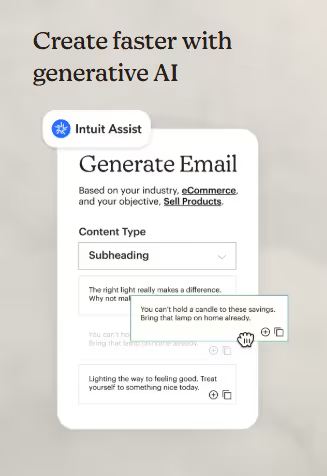
- Built-in audience management and segmentation
- Comprehensive analytics and A/B testing
- Native ecommerce integrations for transactional emails
- Landing page creation and social media tools
However, Mailchimp is explicitly not designed for cold outreach. Their terms of service prohibit unsolicited emails, and users attempting cold outreach risk account suspension.
Saleshandy takes a completely different approach, focusing exclusively on the needs of sales teams conducting cold outreach. Unlike general email marketing platforms, every feature is designed for prospecting:
- Advanced email sequence builder with conditional logic
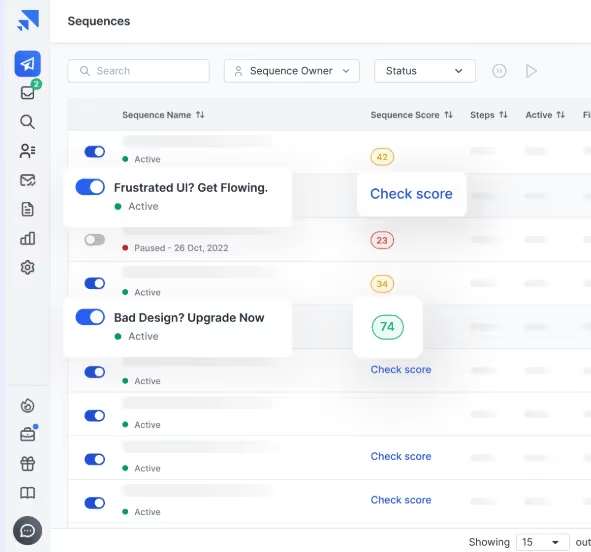
- Email warm-up to improve deliverability
- Sender rotation across multiple email accounts
- Real-time tracking without affecting inbox placement
- Lead finder and email verification tools
The platform understands that cold emails require a different approach than marketing emails, with features like automatic sequence pausing when prospects reply and sophisticated personalization options.
SalesRobot operates in yet another category entirely, focusing on LinkedIn automation with email as a complementary channel. Its core strength lies in:
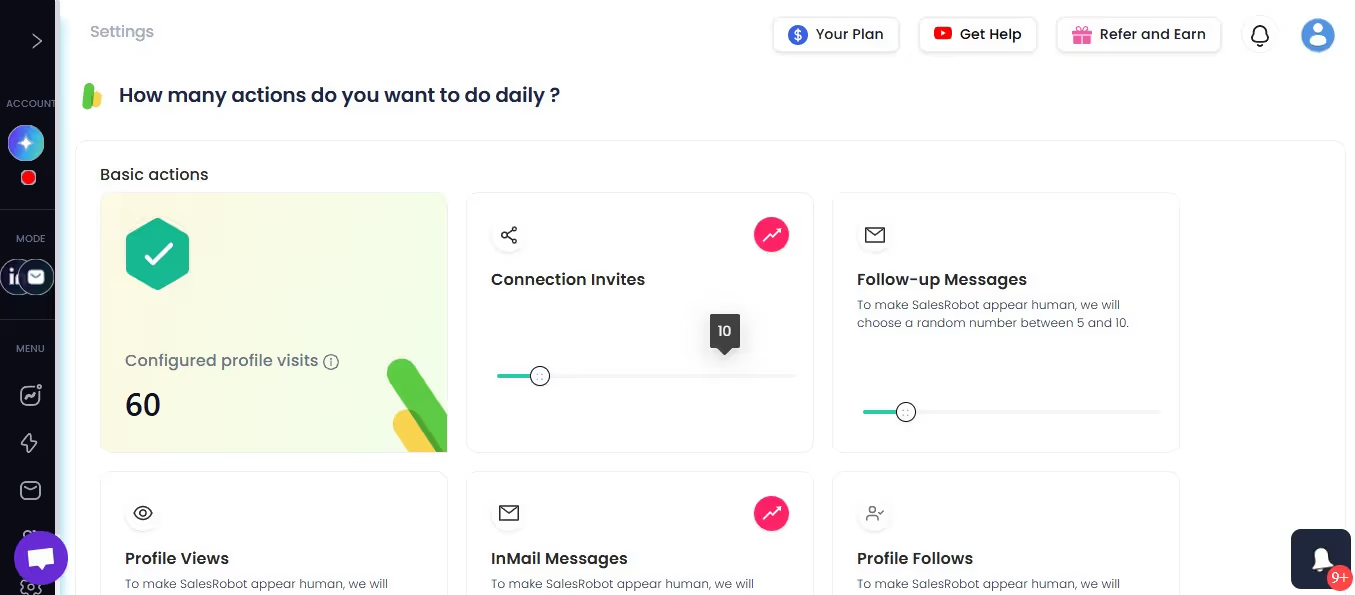
- Safe LinkedIn automation with dedicated IPs
- Smart daily limits that mimic human behavior
- Profile views, connection requests, and messaging automation
- Custom follow-up sequences with tags and triggers
- Account safety features that prevent LinkedIn bans
Mailchimp vs Saleshandy vs SalesRobot: Safety & Compliance
Safety and compliance take different forms across these platforms, reflecting their distinct use cases.
Mailchimp provides excellent safety for its intended use case—marketing to opted-in subscribers. The platform offers:
- High deliverability rates for permission-based emails
- Built-in compliance with email marketing regulations
- Automatic list hygiene and bounce management
- Strict policies against unsolicited emails
However, Mailchimp is not suitable for cold outreach and will suspend accounts that attempt it.
Saleshandy recognizes that cold email faces unique deliverability challenges and addresses them head-on:
- Built-in email warm-up functionality
- IP rotation and sender reputation management
- Spam testing tools and deliverability monitoring
- Best practice guides for staying off blacklists
The platform helps users maintain good sender reputation while conducting cold outreach at scale.
SalesRobot revolutionizes safety in the automation space with industry-leading account protection:
- Dedicated residential IP addresses for each user
- Mobile API integration that mimics natural behavior
- Smart daily limits based on account age and activity
- Real-time monitoring for LinkedIn warnings
- Automatic adjustment when platform signals are detected

Unlike other LinkedIn tools that rely on browser-based automation (which LinkedIn can easily detect), SalesRobot's mobile API approach keeps accounts safe.
Mailchimp vs Saleshandy vs SalesRobot: Automation Features
Each platform's automation features reflect its primary use case, but SalesRobot's unique multi-platform approach gives it an edge.
Mailchimp automation focuses on marketing workflows:
- Welcome series and drip campaigns
- Behavioral triggers based on website activity
- E-commerce automations (abandoned cart, purchase follow-up)
- Basic segmentation and personalization

- Social media scheduling
These features work well for nurturing existing customers and marketing qualified leads.
Saleshandy provides sophisticated automation specifically for sales outreach:
- Multi-step email sequences with delays
- Conditional logic based on prospect behavior
- Auto-pause on replies to prevent embarrassing follow-ups
- Advanced personalization with custom fields
- Schedule optimization for different time zones
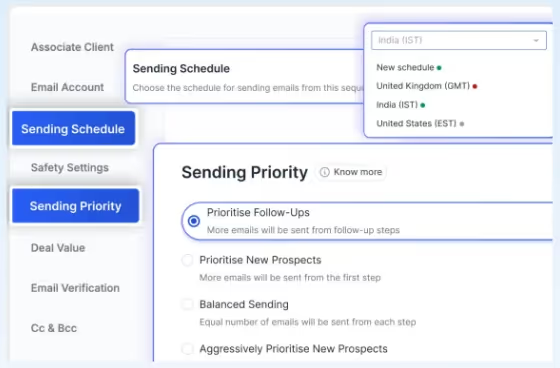
The platform understands that sales automation needs to be more nuanced than marketing automation.
SalesRobot offers the most comprehensive automation suite:
- LinkedIn connection requests with personalized messages
- Automated profile views and post engagement
- Follow-up sequences across LinkedIn and email
- Tag-based automation for sophisticated workflows
- A/B testing for LinkedIn messages and email content
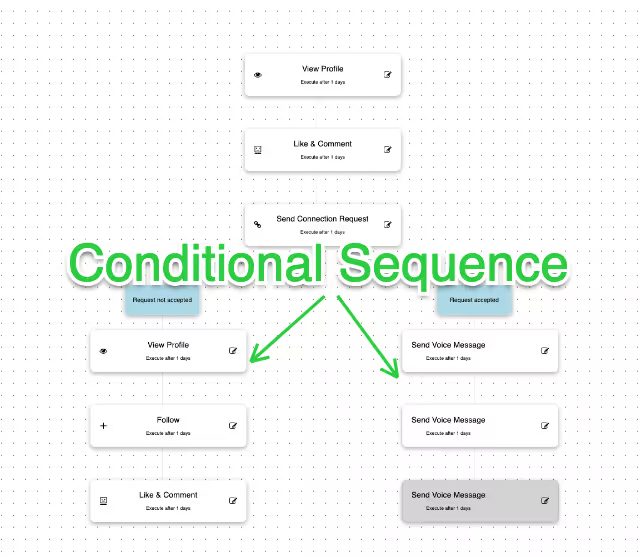
The ability to automate across both LinkedIn and email, while maintaining account safety, makes SalesRobot uniquely powerful for B2B outreach.
Mailchimp vs Saleshandy vs SalesRobot: User Experience & Learning Curve
User experience varies significantly across these platforms, with each making different trade-offs between simplicity and power.
Mailchimp sets the gold standard for user-friendly email marketing:
- Intuitive drag-and-drop interface
- Extensive template library
- Clear navigation with logical workflows
- Helpful onboarding tutorials
- Immediate visual feedback
New users can create their first campaign within minutes, making it ideal for small businesses without technical expertise.
Saleshandy strikes a balance between ease of use and advanced functionality:
- Clean, organized dashboard
- Logical sequence builder
- Good documentation and tutorials
- Responsive customer support
- Moderate learning curve for advanced features
While more complex than Mailchimp for basic tasks, it remains accessible to non-technical sales teams.
SalesRobot manages complexity well but requires more initial setup:
- Step-by-step campaign creation wizard
- Clear organization of LinkedIn vs. email features
- Comprehensive help documentation
- Excellent customer support
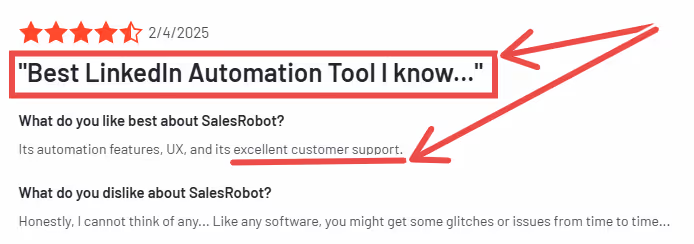
- Some interface areas can feel busy with many active campaigns
The platform's complexity is justified by its powerful features, and the support team helps users navigate the initial learning curve.
Mailchimp vs Saleshandy vs SalesRobot: Integrations & Extensibility
Integration capabilities reveal each platform's ecosystem focus and target audience.
Mailchimp offers the most extensive integration library:
- 300+ native integrations
- Strong e-commerce platform connections (Shopify, BigCommerce)
- Social media platforms (Facebook, Instagram)
- Analytics tools (Google Analytics)
- CRM systems (HubSpot, Salesforce)
- Zapier for custom workflows
This breadth makes Mailchimp ideal for businesses needing to connect email marketing with various marketing and sales tools.
Saleshandy provides targeted integrations for sales workflows:
- Major CRM platforms (HubSpot, Salesforce, Pipedrive)
- Email providers (Gmail, Outlook)
- Sales Navigator integration
- Zapier support for custom workflows
- API access for developers
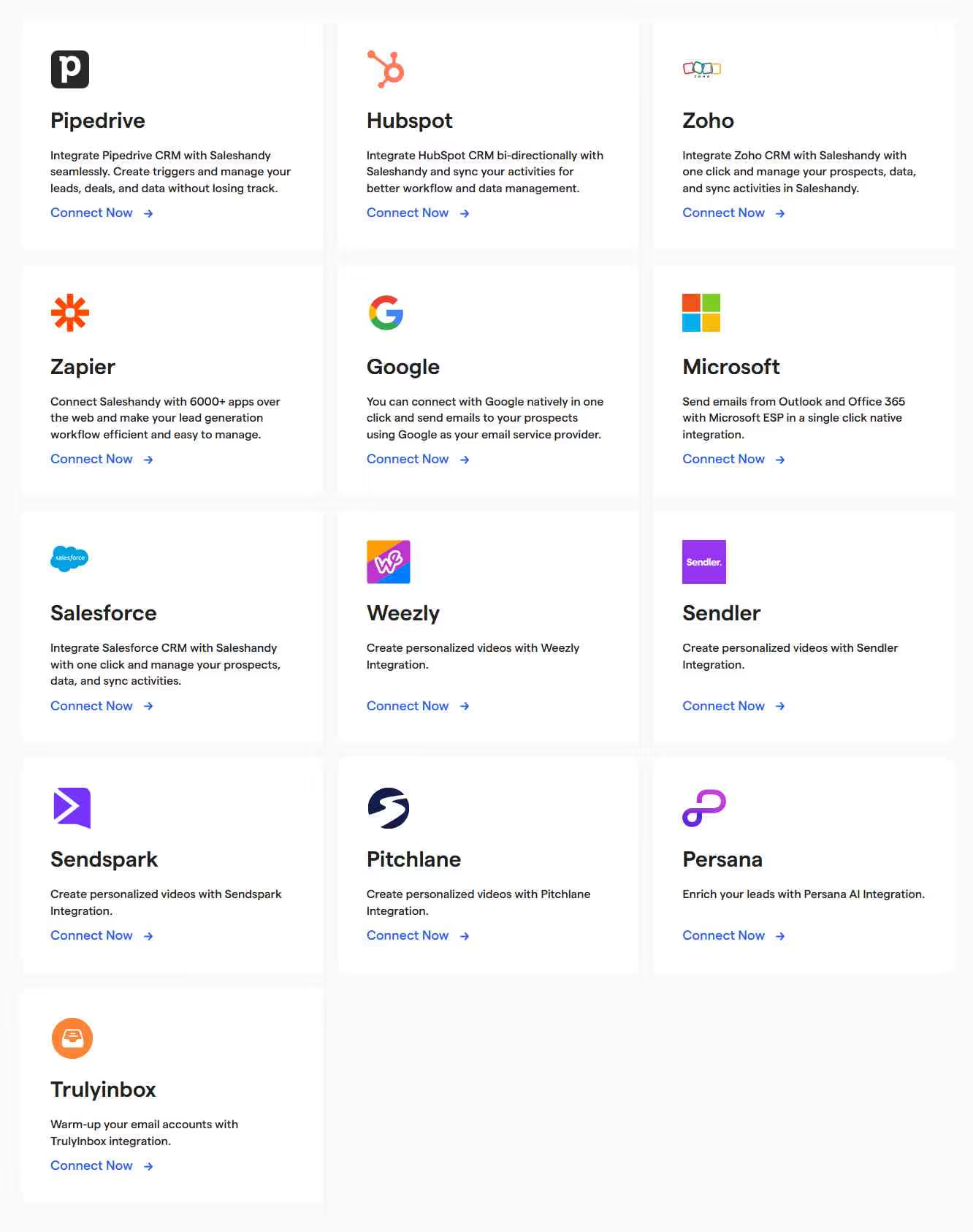
While fewer in number, these integrations cover the essential tools sales teams use daily.
SalesRobot offers growing integration capabilities:
- Basic CRM connections (HubSpot, with improvements ongoing)
- Zapier and webhook support
- CSV import/export functionality
- API access for custom integrations
- Focus on workflow automation tools
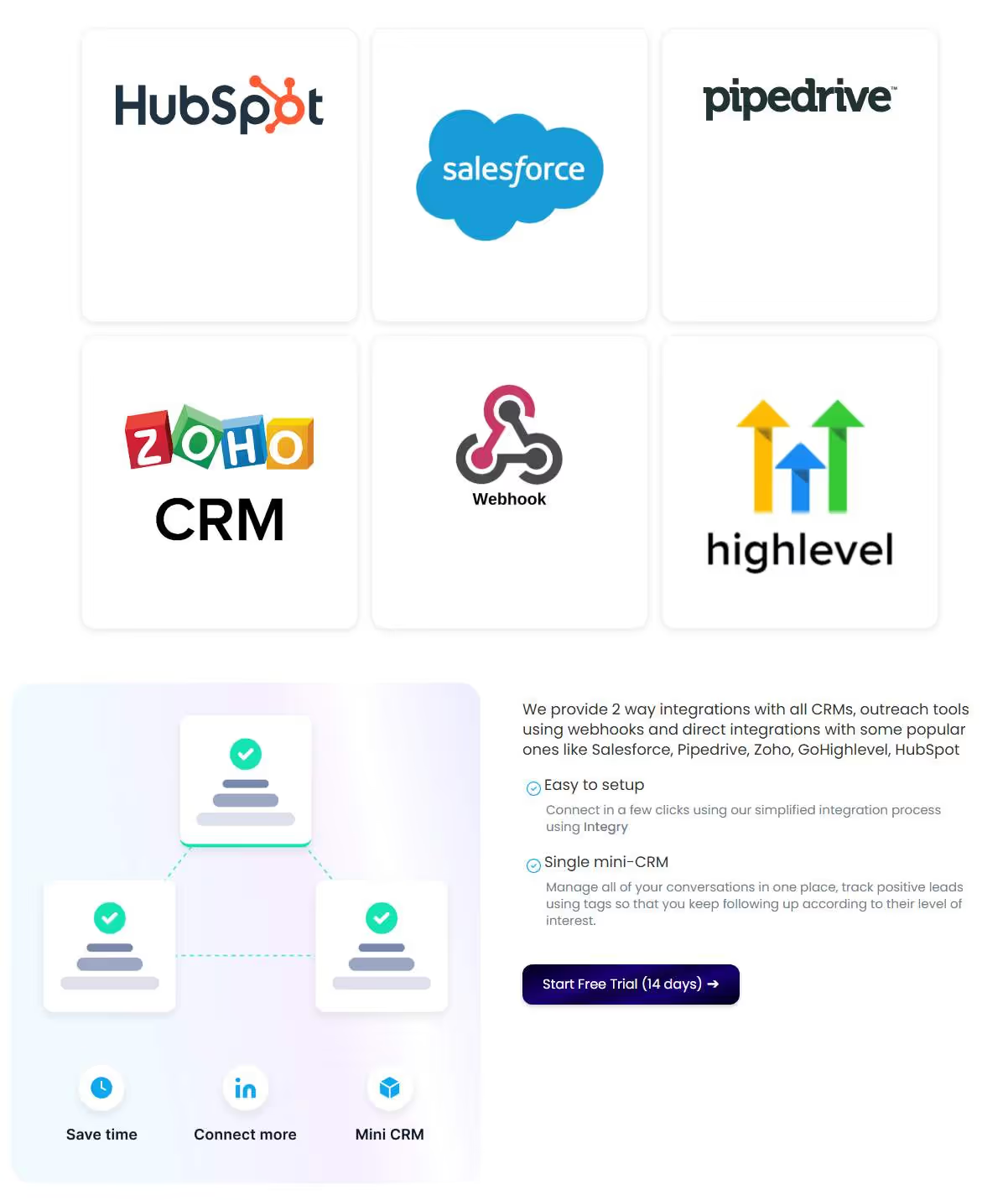
The integration list is smaller but growing rapidly based on user feedback.
Mailchimp vs Saleshandy vs SalesRobot: Pricing & Value
Pricing structures reflect each platform's business model and target market.
Mailchimp uses contact-based pricing:
- Free plan limited to 500 contacts
- Essentials from $8.91/month but limited sends
- Standard from $13.31/month with automation
- Premium from $266.17/month for advanced features
- Pricing can become expensive as contact lists grow
The free plan is generous, but costs escalate quickly for growing businesses.
Saleshandy offers user-based pricing:
- Outreach Starter: $36/month per user
- Outreach Pro: $99/month per user (most popular)
- Outreach Scale: $199/month per user
- Scale Plus: $299/month per user
- Unlimited emails within fair usage limits
Predictable monthly costs regardless of contact list size appeal to sales teams.
SalesRobot provides account-based pricing:
- Basic: $59/month per LinkedIn account
- Advanced: $79/month per LinkedIn account
- Professional: $99/month per LinkedIn account
- Up to 35% discount on annual plans
- Includes both LinkedIn and email automation
The unique value of safe LinkedIn automation at this price point offers excellent ROI for B2B teams.
Pros & Cons Section
Mailchimp Pros & Cons
Saleshandy Pros & Cons
SalesRobot Pros & Cons
Final Verdict
Each platform excels in its specific domain, making the choice dependent on your primary outreach channel and business needs:
Use Mailchimp if:
- You're building and nurturing an email list of existing customers
- Visual design and brand consistency are top priorities
- You need a beginner-friendly platform with drag-and-drop functionality
- Your marketing mix includes ecommerce or social media integrations
- You want to start with a robust free plan and scale gradually
- Your email communications focus on newsletters and promotional content
Use Saleshandy if:
- Cold email outreach is your primary sales strategy
- You need advanced sequence automation with conditional logic
- Email deliverability and inbox placement are critical concerns
- You want to manage multiple email accounts and sender rotation
- Your team focuses exclusively on email-based prospecting
- You need detailed tracking and analytics for cold email campaigns
Get started with Saleshandy ➡️
Use SalesRobot if:
- LinkedIn is your primary lead generation channel
- You need 24/7 automation without keeping your computer running
- Account safety and avoiding LinkedIn restrictions is non-negotiable
- You want the security of dedicated residential IP addresses
- Multi-channel outreach (LinkedIn + Email) is part of your strategy
- You prefer premium support and hands-on assistance
Get started with SalesRobot ➡️
After thorough testing and analysis, SalesRobot emerges as the standout choice for businesses serious about B2B LinkedIn outreach.
Its cloud-based infrastructure with dedicated IPs solves the fundamental safety issues plaguing other LinkedIn automation tools. The zero-ban track record across 3,700+ users demonstrates the effectiveness of their mobile API approach and smart throttling system.
The platform's multi-channel capabilities eliminate the need for multiple tools, while the exceptional customer support ensures you maximize your investment.
Mailchimp excels in its domain of email marketing, offering unmatched design capabilities and ease of use for permission-based marketing campaigns.
Saleshandy provides excellent value for teams focused purely on cold email outreach, with industry-leading deliverability features.
However, for B2B businesses where LinkedIn relationships drive revenue, SalesRobot's unique combination of safety, automation, and multi-channel integration creates unparalleled value.
The platform's sophisticated automation saves hours of manual work while maintaining the personal touch that makes LinkedIn outreach effective.
Your choice ultimately depends on your primary outreach channel, risk tolerance, and business priorities. But for LinkedIn-focused B2B teams, SalesRobot offers the most compelling combination of safety, features, and results.
Heading 1
Heading 2
Heading 3
Heading 4
Heading 5
Heading 6
Lorem ipsum dolor sit amet, consectetur adipiscing elit, sed do eiusmod tempor incididunt ut labore et dolore magna aliqua. Ut enim ad minim veniam, quis nostrud exercitation ullamco laboris nisi ut aliquip ex ea commodo consequat. Duis aute irure dolor in reprehenderit in voluptate velit esse cillum dolore eu fugiat nulla pariatur.
Block quote
Ordered list
- Item 1
- Item 2
- Item 3
Unordered list
- Item A
- Item B
- Item C
Bold text
Emphasis
Superscript
Subscript

Wow your leads by cloning yourself and sending personalized videos and voice notes to each lead on LinkedIn.

If you don't reply to leads within 5 mins, your chances of converting them fall by 50%. Our AI replies on your behalf instantly! (and yes, you can train it)

Don't shoot in the dark. Get detailed analytics on what's working
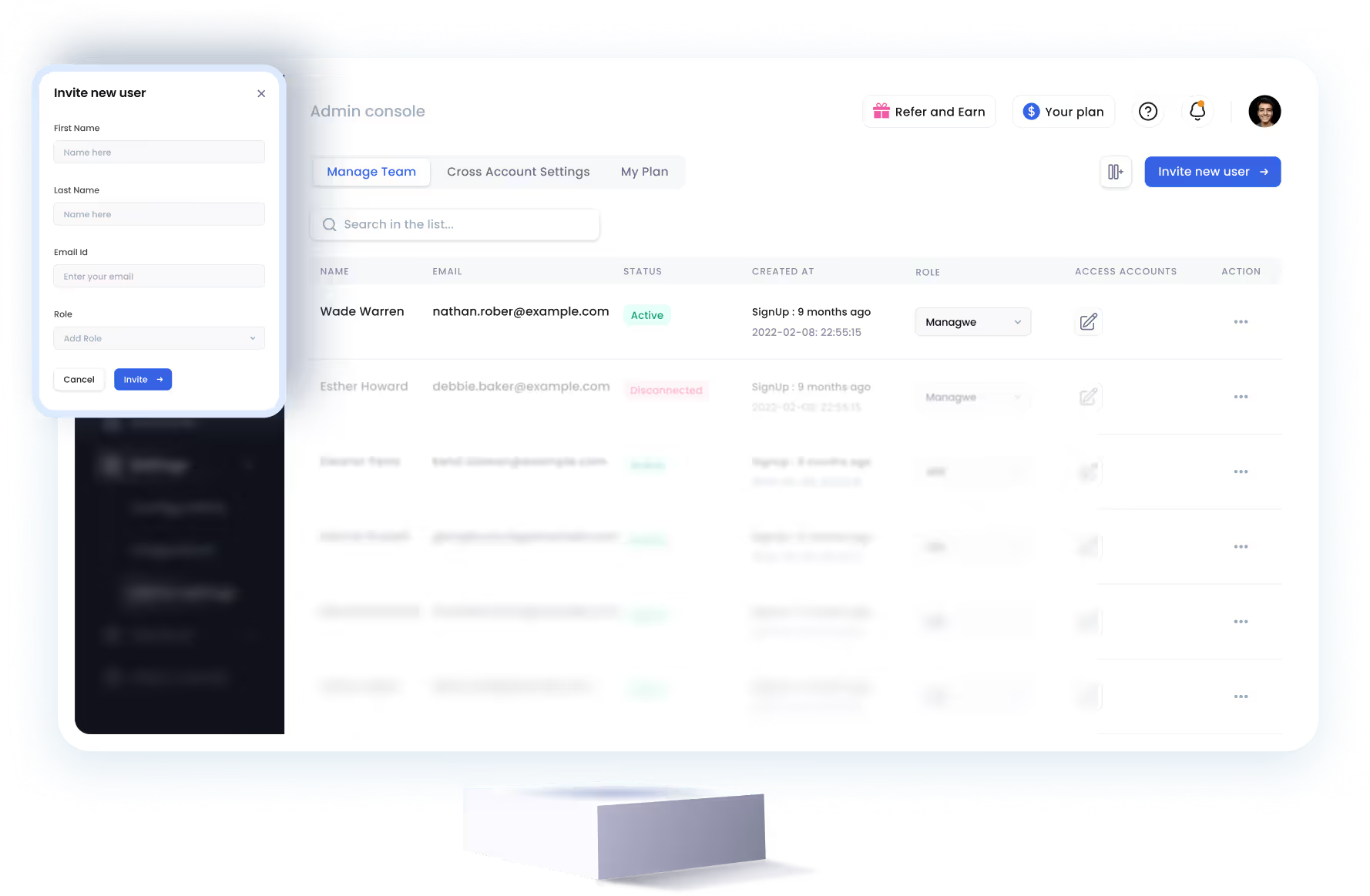
SalesRobot allows you to invite other team members, so that they can add their LinkedIn Account, run outreach campaigns and get amazing results just like you.
Trusted by 4100+ innovative B2B sales teams and lead gen agencies

.avif)

.avif)




.avif)


















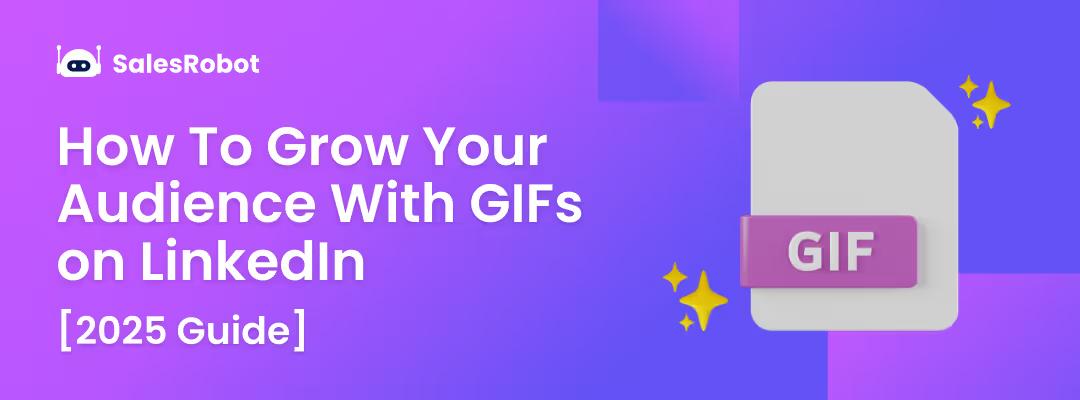
.avif)





